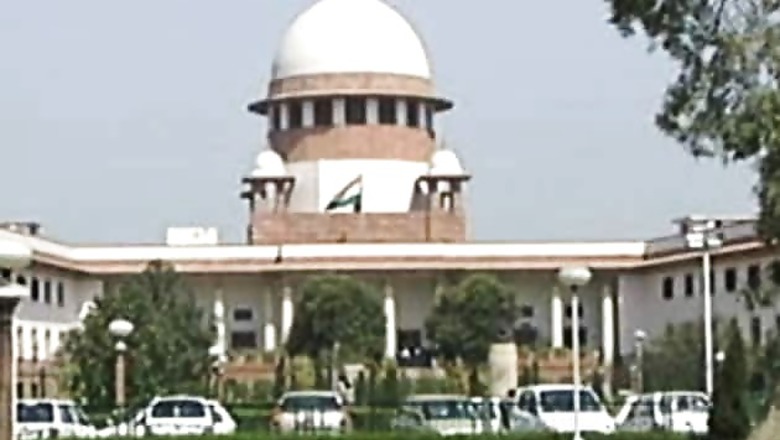
views
New Delhi: The Supreme Court on Friday directed a fresh trial of a terror accused whose conviction and sentencing had been set aside by a court bench on grounds that the accused was not provided with legal assistance but was split on the future course of action.
Directing the de novo trial of Mohammad Hussain alias Zulfikar Ali, accused in 1997 bomb blast in Delhi, the court said: "The nature of the incident and the circumstances in which it occurred speak volume about the very grave nature of offence."
Speaking for the three-judge bench, Justice RM Lodha said that "we don't think so" that the mere fact that Hussain Ali was arrested more than 14 years ago and has passed through mental and retrial would prolong the culmination of his trial are factors sufficient for his acquittal and dismissal of indictment.
Earlier, a bench of Justice HL Dattu and Justice CK Prasad held that since the accused was denied the right to be represented by the counsel in the course of the trial thus trial was contrary to the procedure prescribed under the provisions of the Code of Criminal Procedure and set aside his conviction and sentencing.
However, Justice Dattu and Justice Prasad differed on the next course of action, with the former favouring a new trial, while the latter held that since trial was vitiated, the accused should be released and deported as he was a Pakistani national.
Because of the split verdict, the matter was referred to the three judge bench of Justice Lodha, Justice Anil R Dave and Justice SJ Mukhopadhaya for hearing to decide whether the matter requires to be remanded for a fresh trial in the facts and the circumstances of the case.
The case relates to 1997 bomb blast in a DTC bus when it stopped at a bus stand. The moment the bus stopped, an explosion took place inside, resulting in the death of four people and injury to 24 others. Hussain was arrested on March 9, 1998.
"It cannot be ignored that the offences with which the appellant has been charged are of very serious nature and if the prosecution succeeds and the appellant is convicted under Section 302 IPC on retrial, the sentence could be death or life imprisonment," the bench said.
Holding that Hussain was denied the due process of trial, the court said: "Gravity of the offences and the criminality with which the appellant is charged are important factors that need to be kept in mind."
"It is desirable that punishment should follow offence as closely as possible. In an extremely serious criminal case of exceptional nature like the present one, it would occasion in failure of justice if the prosecution is not taken to the logical conclusion."
"Justice is supreme", the court underlined saying that the retrial of the appellant, in its opinion, under the facts and circumstances, is indispensable.
It is imperative that justice is secured after providing the appellant with a legal practitioner if he does not engage a lawyer of his choice, the court said while directing the trial court to concluded the trial "as expeditiously as may be possible and in no case later than three months from the date of communication of this order".



















Comments
0 comment